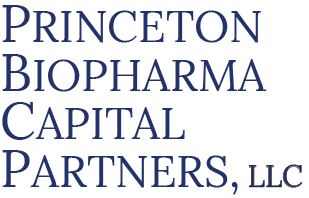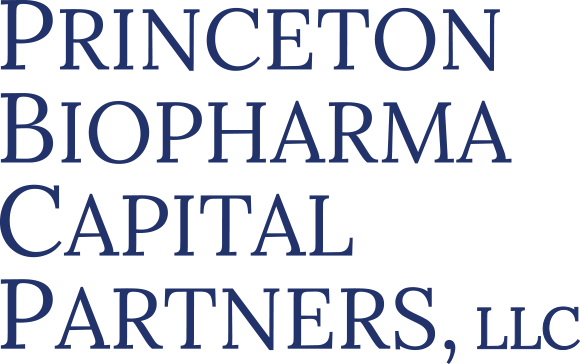13 years after launching a business pitch competition for Pitt healthcare technologies, Pitt alum Michael Wells reflects on the growth of the university’s culture of innovation and entrepreneurship
Michael Wells had already developed an innovation mindset while earning both a bachelor’s and master’s degree from the University of Pittsburgh School of Education. (EDUC’90, EDUC’92G)
An avid marathon runner, he wondered about the challenges faced by wheelchair athletes when needing to train during inclement weather.
“I thought I had a good idea for a stationary training wheelchair, but I didn’t know where to turn and didn’t have the resources to make it a reality,” he said. ‘I graduated and moved on. I’m sure somebody else must have executed on that idea.”
Fast forward a decade to 2011, and Wells had successfully executed on several other ideas. He founded Aton Pharma Inc., a specialty pharmaceutical company focused on rare diseases that he grew to sales of nearly $100 million. Prior to that he co-founded Lathian Systems Inc., an online data and marketing services firm serving biotech companies.
Around this time, he received a call from the University’s development office asking if he would be interested in giving back to Pitt. Recalling his feeling of helplessness as a student in pursuing his wheelchair training idea, Wells decided to give back in a way that had meaning to him.
Wells proposed establishing an innovation pitch competition for students similar to one at the Wharton School of Business, where he earned an MBA after Pitt, and for which he served as a judge.
“I wanted to provide seed funding for Pitt students who have big ideas and help them move those ideas to the next stage,” he said.
And so was born the Michael G. Wells Student Healthcare Competition, where students of any level from across the university with a healthcare-related innovation can pitch their ideas to a panel of judges from the university and Pittsburgh regional innovation and entrepreneurship communities. Mr. Wells makes a trip to campus each October to assist with the judging.
“I have been blown away by how well the university has managed and grown this program,” Wells said. “The quality of the applicants and the presentations has continued to impress me. The pitches I see are every bit as good as the Wharton competition, which has gone on for far longer.”
Through the first 12 years, innovation teams that have competed in the Wells competition have gone on to form 20 startup companies and have raised nearly $30 million in additional funding through the university or private investors.
One of those companies is Respair, Inc., which is developing a new and improved endotracheal tube to prevent bacteria from reaching the lungs. In addition to winning a second-place prize in the Wells competition, it has received an award in the Pitt Innovation Challenge (PInCh) and from the Center for Medical Innovation at the Swanson School of Engineering.
The company is now in the incubator program at AlphaLab Health, operated by Innovation Works, Western Pennsylvania’s state supported startup investment organization.
“I firmly believe that creativity and innovation are contagious. There is now an extremely vibrant entrepreneurial culture on campus and in the Pittsburgh region that was definitely not there when I was a student,” Wells said. “It’s palpable now. I hope this competition has provided a spark for that change in culture.”
Evan Facher, Pitt’s Vice Chancellor for Innovation and Entrepreneurship and Associate Dean, Commercial Translation at the Pitt School of Medicine, said there is no doubt that it has.
“Michael Wells stepped up to the plate at a time when the resources to support innovation commercialization at Pitt were severely lacking,” Facher said. “And not only has he provided financial support, but he has also taken an active role as judge for the competition sharing his vast experience as a biotech executive and investor to help mentor our innovation teams.”
A case in point is the 2022 winner of the Wells competition, Astria Biosciences. The Astria team had competed in the 2021 competition and caught Wells’ eye with its technology to detect brain aneurysms. Their pitch also included a potential treatment to halt aneurysm progression. Wells advised them to narrow their initial focus solely on the diagnosis problem.
“They were trying to do way too much too soon. My feedback was to focus and sequence their efforts,” Wells said. “They came back the next year and knocked it out of the park.”
Astria went on to compete in the prestigious Rice Business Plan Competition. It recently completed a study of their diagnostic tool with 200 patients and is preparing to license its technology from the university.
Wells does not invest in companies that compete in the competition beyond the prize money awarded.
“I do this purely as philanthropy. These technologies are earlier in development than where I typically get involved,” he said. “The competition is a crash course in entrepreneurship. If you have an idea and want to test it, this is a fantastic way to find out if the idea has merit and possibly could be the foundation for a company. There is no downside to participating.”
Facher said that since Wells and fellow Pitt trustee Bob Randall, whose family provided the seed funding to establish the Big Idea Center for student innovation and entrepreneurship, stepped up to support student innovators, several others have followed their lead. Andy and Laurie Kuzneski came forward to support the Kuzneski Innovation Cup and several alumni from the Swanson School of Engineering joined together to launch, the Big Idea Advantage Fund, a donor-supported investment fund for students interested in forming a startup around their innovation.
“What Michael has done for the University cannot be underestimated. He is one of the main reasons Pitt has been able to grow its innovation culture at the rate it has,” Facher said. “Having alumni and friends like him, willing to give of their time and resources to support the next generation of innovators is part of what makes Pitt so special.”
If you are an entrepreneurial Pitt student or postdoc working on Pitt healthcare-related research with commercial potential, applications to the 2023 Michael G. Wells Student Healthcare Competition are now open.
© 2017 Princeton Biopharma Capital Partners, LLC. | Created by Harmony Marketing Partners
Save
Save
Save

